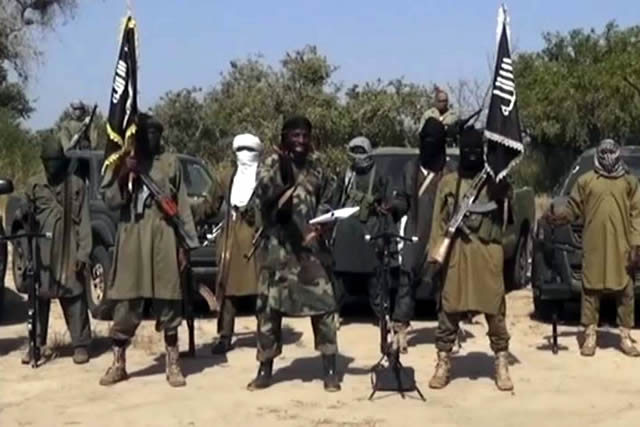The growing spread of radical-Islamic networks have turned the threat of terrorism into a global challenge as single states are experiencing waning capacities to tackle international problems or the growing salience of non-state actors.
In this framework, current debates in International Relations (IR) entail claims regarding the global structures evolving in the new millennium world.
More specifically, global governance literature observes world politics, addressing the question of power and authority in IR. Namely, it identifies a diffusion of power and authority in world politics and thus a move from realistic anarchy to heterarchy.
In this light, one realizes that the concepts, such as, strong democracy, transparency, community involvement and commitment, and community knowledge cannot be implemented without governance and broader participation.
Terrorist organizations as well as organized crime have taken advantage of neoliberal reforms and globalization which have facilitated the spawning and rapid growth of transnational crimes. Nowadays, transnational organized crime is a considerable threat to international security and an enabler for terrorist financing through human trafficking, drug trafficking, arms smuggling and money-laundering.
It is a fact that terrorists are free to exploit the liberties of the open society, while the authorities work under the constant scrutiny of the free press, public opinion, the political opposition, human rights organizations and the guardians of legal codes.
Both globalization and terrorism have deeply transformed the state and set in motion a momentous shift from ‘government’ to ‘governance’ thus stimulating a ‘networked polity’ operating at supra-national level concerned with creating the conditions for ordered rule and collective action.
In this framework, governance entails a move away from traditional hierarchical forms of organization and the adoption of network forms. It also entails a revision of the relationship between state and other stakeholders in a more participatory direction.
Effective networks have the potential to make immense impact on systemic change at any level – from a community or grassroots level to a global scale.
The global governance architecture of counter-terrorism suffers from the absence of a comprehensive international treaty which has been partially amended by regional attempts to fight terrorism. Regional Formal Intergovernmental Organizations (FIGOs), such as the European Union with the EU Framework Decision on Combating Terrorism, the Arab Convention on the Suppression of Terrorism (LAS) and the Convention of the Organization of the Islamic Conference on Combating International Terrorism (OIC) or the African Union with the AOU Convention on the Prevention and Combat of Terrorism and more recently the Malabo Protocol, have adopted regional conventions on terrorism which provide regional definitions of terrorism and establish specific measures for the prevention of terrorism.
In the counter-terrorism field Informal Intergovernmental Organizations (IIGOs) is a relevant category of actor within the counter-terrorism architecture increasing in importance, as they facilitate intelligence-sharing and contribute to capacity-building and to the fight against terrorist financing. The Counter ISIS Finance Group (CIFG), a working group of the Global Coalition to Defeat ISIS co-chaired by Italy, Saudi Arabia, and the United States, the Riyadh-based Terrorist Financing Targeting Center (TFTC) and the Financial Action Task Force on Money Laundering (FATF) are cases in point.
In terrorism, the relevance over international courts and tribunals has the potential to play an important role in the reestablishment of peace and security.
In general terms Charters, Statutes and instruments setting up International Criminal Tribunals, namely the International Military Tribunals for Nuremberg and Tokyo and the International Criminal Tribunal for Former Yugoslavia, among others, included a description of the crimes regarded as crimes against humanity. These provisions were further developed following the entry into force in 2002 of the Rome Statute of the International Criminal Court (‘Rome Statute’).
More specifically, there are some ad hoc international courts which foresee some provision for terrorism-related offences like the Statute of the Special Court for Sierra Leone (art. 3d), or the Statute of the International Criminal Tribunal for Rwanda (art. 4d), but the Special Tribunal for Lebanon (UNSC Resolution 1757 (2007) is the only international tribunal with express jurisdiction over terrorism-related offences.
The tribunal is only competent to apply Lebanese criminal law to specific, geographically and temporally confined events, and, according to Foreign Policy Magazine, “… spent more than $1 billion and took 11 years to return one guilty verdict (out of four suspects on trial in absentia), never had the remit to investigate Hezbollah as an organization, and its final verdict was undermined before it had even been read out by the demonstrably ridiculous statement that the court had seen “no evidence that the Hezbollah leadership had any involvement” in the assassination, before returning a guilty verdict for a senior Hezbollah operative, Salim Ayyash. Ayyash was found guilty of co-conspiring to murder Hariri with Mustafa Badreddine, Hezbollah’s second-in-command, whose case at the tribunal was dropped following his death in Syria in 2016.”
In the same vein, the African Court of Justice and Human Rights (ACJHR) is set to become the first regional court to have jurisdiction over a crime of terrorism, with the adoption of article 28G of the Malabo Protocol. In this respect, recent Vice President Yemi Osinbajo stressing the need for Africa Union member-states to be sensitized on the role of the African Court on Human and Peoples Rights is also encouraging.
Further, the Protocol envisages also corporate criminal liability of legal persons and may prosecute any individual may bear criminal responsibility for the crime of terrorism, whether a state official or agent, member of non-state terrorist group, or lone individuals.
It will, therefore, be instrumental in the development of corporate criminal liability for international crimes pursuant to international criminal law although the ACJHR is a regional court that will exercise jurisdiction on the African continent alone.
Time will tell whether other regional courts or the ICC will follow suit and adopt a similar scheme.
Delving into the depths of our despicable present, a UN team investigating ISIL atrocities in Iraq has established “clear and convincing evidence” of genocide against the Yazidi religious minority in the Sinjar region in northern Iraq. In his final briefing to ambassadors, Karim Khan, Special Adviser and Head of the team, known as UNITAD, reported that investigators have reached a “landmark moment” in their work and he also said that “A full scope of criminality is displayed in the awful criminality of Daesh against the Yazidi community”.
The Islamic State of Iraq (and Syria) has cleansed Assyrian Christians, Kurds, and Yezidis from Mosul and the roads to Erbil, Kirkuk, and Baghdad, and enslaved Assyrian Christians and Yezidis as a matter of policy. This displaced more than 1.4 million people in Iraq. In the same circumstance, radical Sunni clerics who allegedly arrived in northern Iraq from the Persian Gulf countries urged ISIS to cut off water and electricity to Christian villages across the front line, which it did.
The rise of warlords, rebel armies, terrorist organizations, and other nonstate threats to population security and economic growth has arguably driven mass exoduses of civilians. According to Uppsala Conflict Data Project, (see: One-sided violence data set, version 1.4–2012) the Islamic State of Iraq inflicted more violence against civilians in 2011 than the government of Cote d’Ivoire, and more than Libya and Nigeria combined.
If entire communities affected by these exoduses at the hands of terrorist groups proved to be unable to reconstitute themselves, this would be a completed genocide according to a broad, originalist reading of the Genocide Convention’s Article II, subsections II(b)–II(d).
This means that there should be a global response to ensuring accountability for acts that may amount to atrocity crimes committed by Da’esh/ISIL.
An International criminal tribunal (ICT) for the purpose of prosecuting individuals and organizations responsible for serious violations of international humanitarian law could contribute significantly to the promotion of international justice and peace, and have a major impact on the prevention of crime, since its prosecutions represent a clear threat to highly placed individuals who commit serious crimes.
Religious organizations, charities, and foundations probably lie behind some of the most horrific episodes of terrorism and civilian enslavement and massacre by terrorist groups.
As a matter of fact, religiously inspired groups linked to persons in Sudan, Qatar, Saudi Arabia, Tunisia, Libya, Turkey have perpetrated horrible crimes in Iraq and Syria, among other places. Such groups can form knowledge of their members’ acts and adopt policies that may violate international norms, just as corporations do.
In this respect, culpability for noncorporate organizations is necessary to ensure that perpetrators of population-level crimes such as enslavement, child soldiering, forcible transfer, destruction of essential infrastructure or government institutions, or genocide do not enjoy impunity. Moreover, recognizing broader associational responsibility may avoid impediments to the fight against impunity posed by doctrines of intent, immunity, and effects-based tests for crimes such as corruption, enslavement, murder, or terrorism.
Should a new Tribunal be envisaged, Iraqi and Syrian’s access to international financial assistance should be made conditional upon cooperation with the new ICT. Further, policies of conditionality should be coordinated together with Russian, Chinese and Saudi counterparts, if we want them to play a role in enabling the ICTs to fulfil their mission of bringing war criminals to justice.
Further, stringent conditions on the definition of terrorism and the character of the underlying criminal act, would be imposed to satisfy the principle of legality. This would also prevent law enforcement authorities to reclassify breaches of ordinary regional and international law as terrorist crimes.
It is evident that supranational criminal prosecution, notably whether supranational criminal law (violence as genocide, a crime against humanity and a war crime) and supranational criminal procedure are not adequate. The adequacy of supranational criminal law system (sentencing and reparation) being primarily examined from the point of view of the Rome Statute and the International Criminal Court (ICC), the benchmark for supranational criminal prosecutions, with clear reference to the practice of the Yugoslav-Tribunal (ICTY) and the Rwanda-Tribunal (ICTR).
The shooting gallery and videos in Scheveningen has non rendered state and corporate violence toxic to the suggestible young men in world’s urban barrios and cyber underworld who make up the base for recruitment of these terrorist organizations’ army.
It is high time that a similar initiative targets also non state actors’ violence. Crimes against humanity and war crimes will require holding also noncorporate organizations accountable in court.
All views and opinions expressed in this article are the author’s own and do not represent the opinions of any entity whatsoever with which I have been, am now, or will be affiliated.








